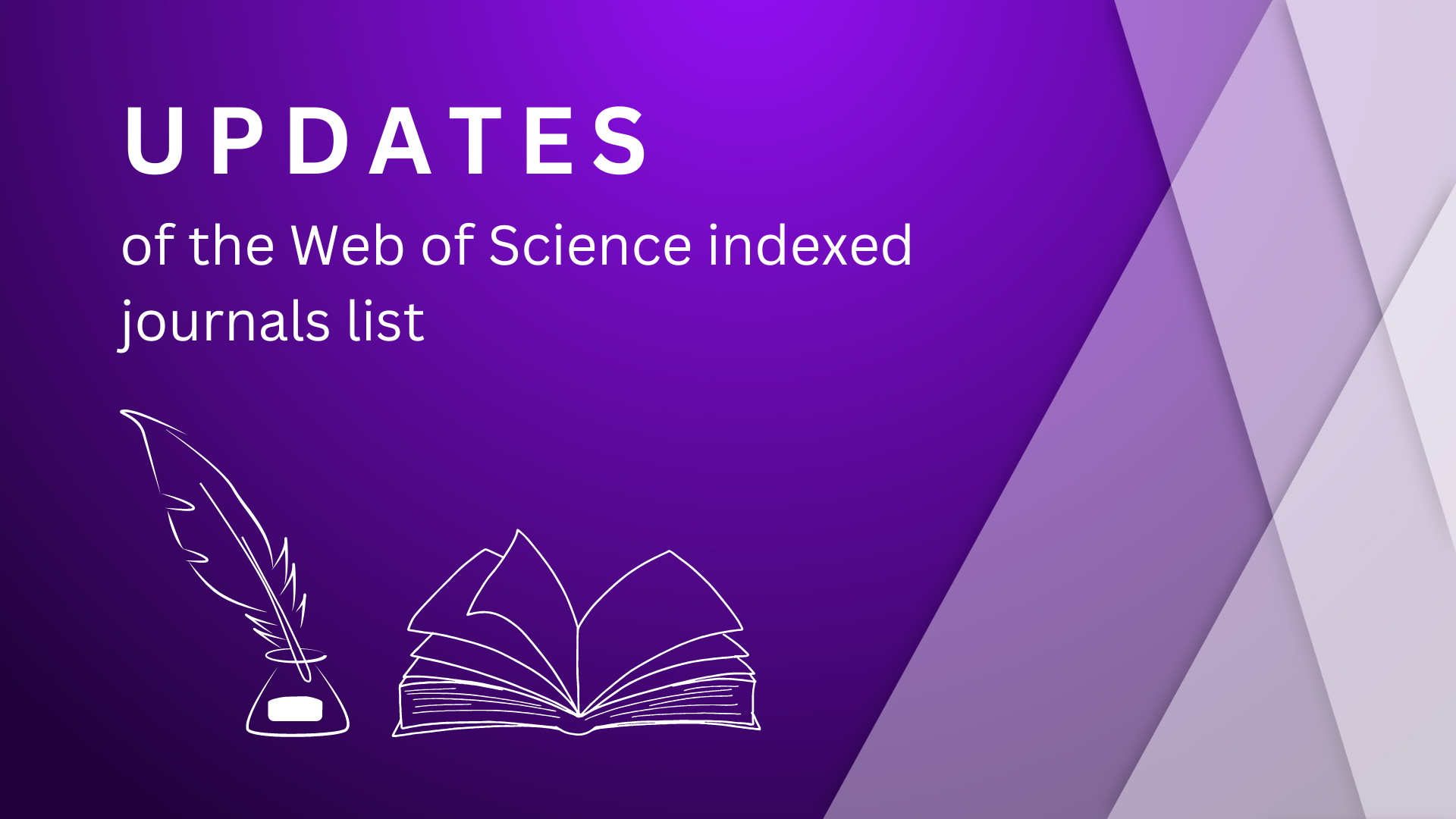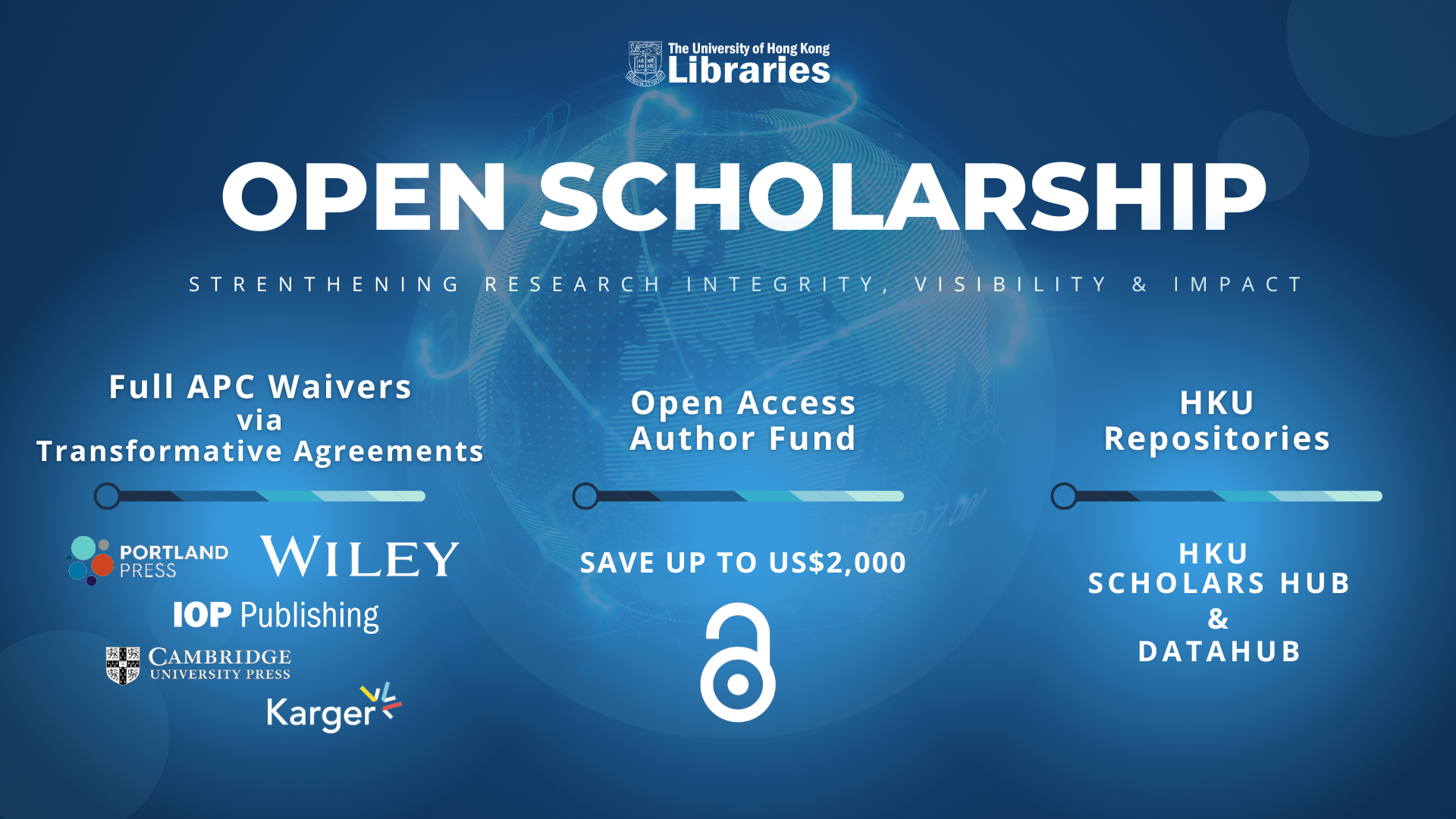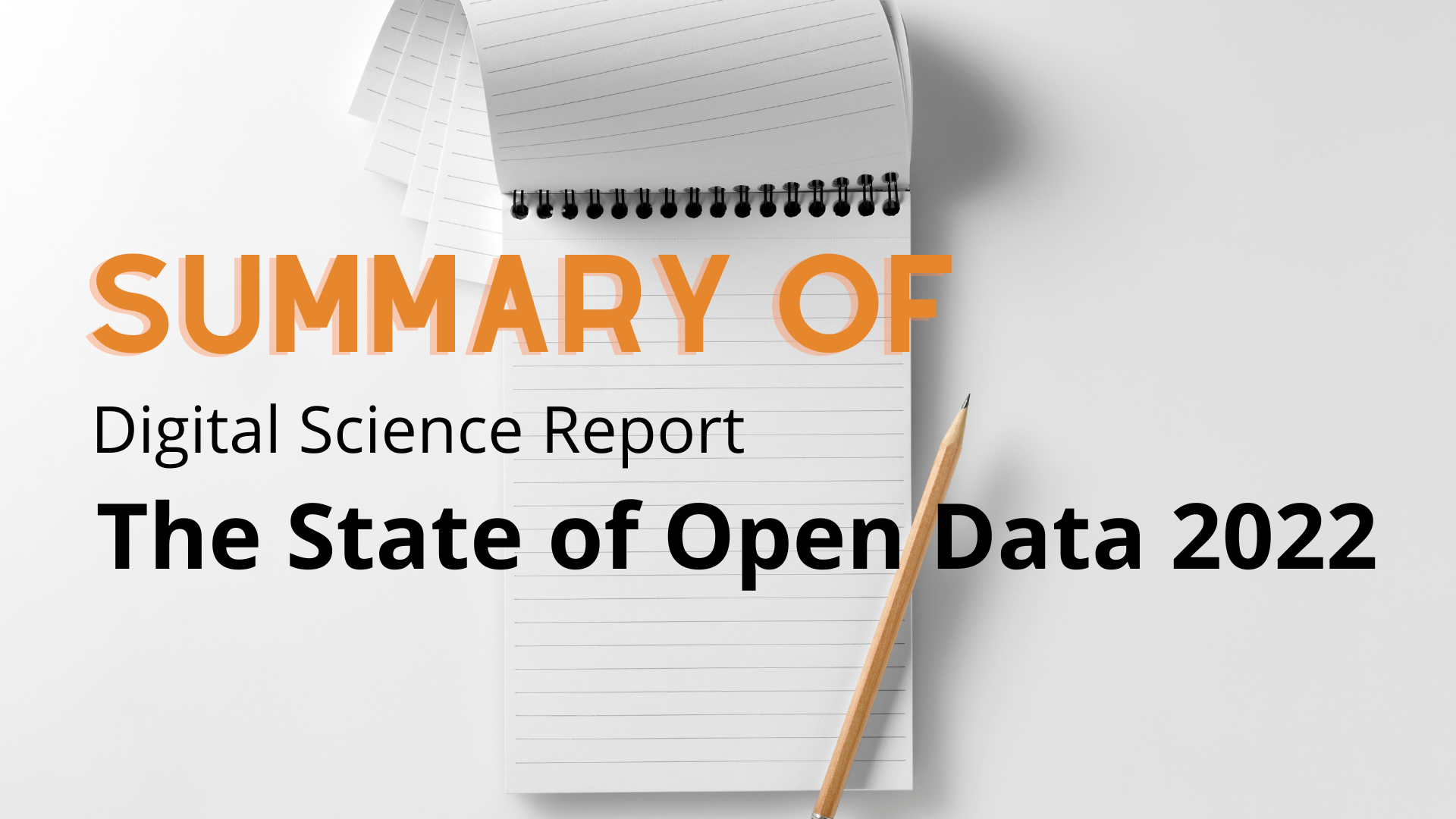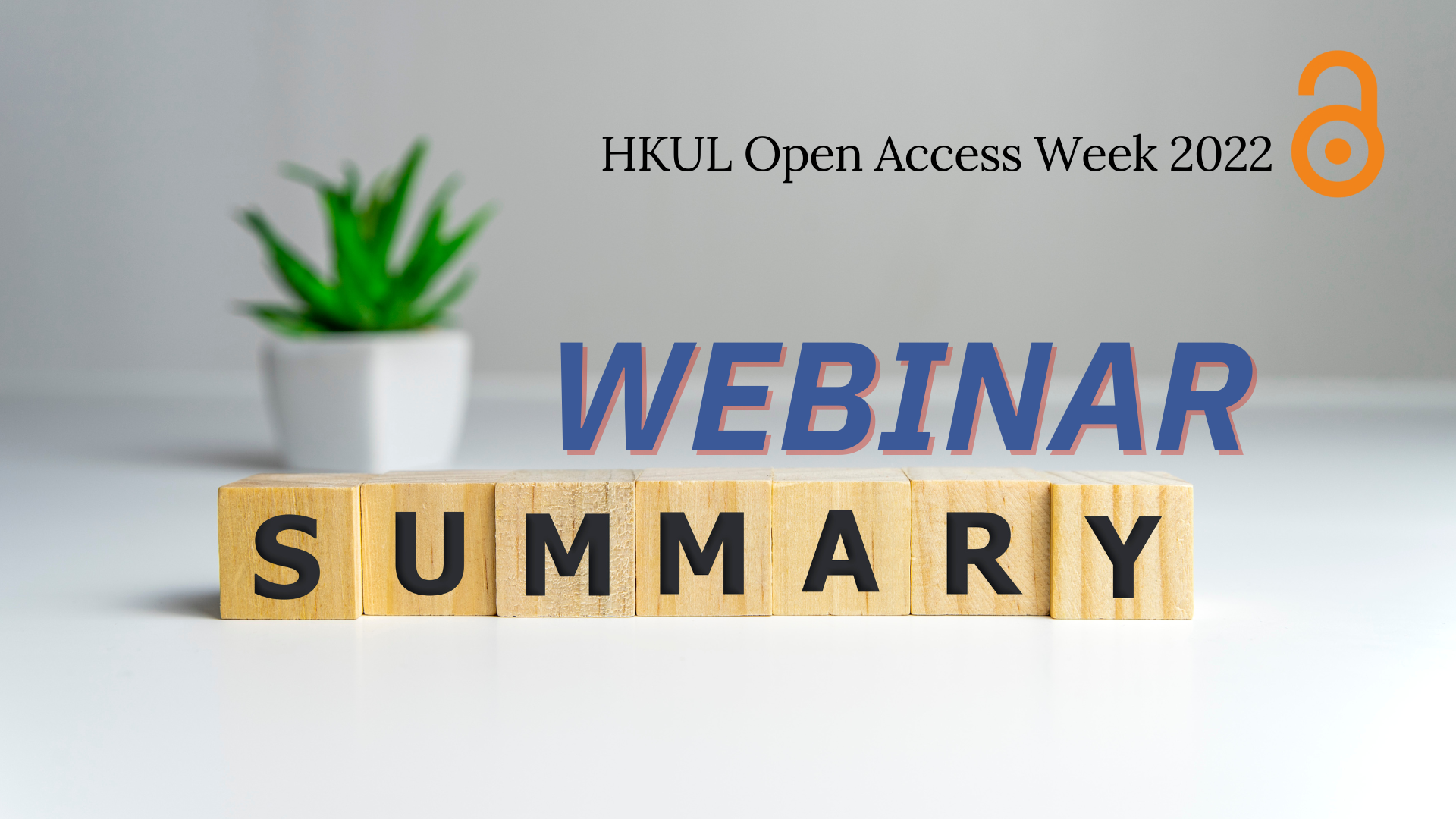Category: Scholarly Communication Services

Beyond citations — Demonstrate your research impact with alternative metrics
— by Fanny Liu Introduction to Altmetrics Alternative metrics (also known as altmetrics) indicate the attention of scientific outputs which are shared, mentioned, and discussed in online environments, which are derived from users’ actions on various social media platforms and other online sources (e.g., Wikipedia) [1]. Altmetric.com is a platform to find altmetrics for research…
Read More
Avoid Falling Prey to Predatory Journals
— by Fanny Liu Predatory journals The emergence of predatory journals (fraudulent, deceptive, or pseudo-journals), journals with deceptive and dishonest practices, has been reported in recent years [1-4]. The journals falsely claim to be offering peer review and publish all articles, regardless of their research rigor, in exchange for a fee. Predatory journals exploit the…
Read More
Extensive updates of indexed journal list on Web of Science for research integrity assurance
— by Florence Ng Clarivate announced in March 2023 that over 50 journals have been delisted from the Web of Science Core Collection in their latest update. The delisted journals failed to meet their quality criteria during the selection review. In the current selection practice, journals are evaluated by 28 criteria, including 24 quality criteria…
Read More
HKU Libraries Supports Open Scholarship
— by Florence Ng HKU Libraries commits to promoting Open Scholarship, which includes enabling open access (OA) to research publications, research datasets, metadata, along with research workflows and other types of outputs. We believe Open Scholarship principles can strengthen research integrity, increase visibility, and enhance the impact of the University. Let’s have a look on…
Read More
Towards a Framework to Measure Open Science Practices – PLOS Open Science Indicators
— by Fanny Liu Open Science is “transparent and accessible knowledge that is shared and developed through collaborative networks” (Vicente-Saez & Martinez-Fuentes, 2018, p. 434). It encompasses emerging trends such as open code, open data, open access, and more. PLOS (Public Library of Science) is a non-profit, open access publisher in science and medicine, and…
Read More
Top 2% Scientist by Stanford University
— by Florence Ng Stanford University has released a publicly available database of top-cited scientists, the World’s Top 2% Scientists for 2022. The ranking list is created based on the bibliometric information retrieved from Scopus as of 1 September 2022, with the data updated to the end of citation year 2021. The datasets are freely…
Read More
Journal submission process – What it has been & What it might become
— by Fanny Liu From 31 January 2023, eLife, a peer reviewed, open-access journal in life sciences and medicine, will adopt a new “publish, review, curate” model for article publishing. There will still be the peer review process, but no more post-peer review accept/reject decisions. Instead, all papers that have undergone peer review will be…
Read More
State of Open Data 2022
— by Fanny Liu The State of Open Data 2022 survey was conducted in May – July 2022, and received over 6000 responses by respondents from across different regions, in different fields of interest, and at different career stages. Most trends are encouraging around the adoption and acceptance of open data. A majority of the…
Read More
Event Summary – Open Science and Open Access Publishing: Integrity and Innovations
— by Fanny Liu The Open Science and Open Access Publishing: Integrity and Innovations event was a great success with around 150 researchers, students, editors, and librarians from countries across the Asia-Pacific region! Organised by HKU Libraries and supported by iGroup Asia Pacific, PLOS, and DOAJ, the event was held on 28 Oct 2022 at…
Read More
Open Science and Open Access Publishing Webinar 2022
— by Florence Ng The HKU Libraries is organizing a webinar regarding Open Science and Open Access Publishing on 28 October 2022 (Friday) from 2:00 p.m. to 4:00 p.m. (Hong Kong time). Guest speakers from iGroup Asia Pacific, PLOS, and DOAJ are invited to deliver speeches related to open sciences and best practices in open…
Read More